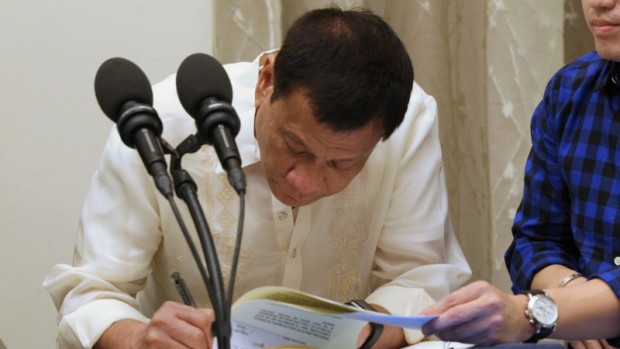Exceptions to the freedom of information (FOI) manual shall be dramatically reduced from 166 to “not more than 10,” an official of the Presidential Communications Office (PCO) told lawmakers on Tuesday.
Speaking at a hearing of the public information committee of the House of Representatives, PCO Assistant Secretary Christian Ablan said exceptions covered in the FOI manual to be rolled out in November would be limited to 10 “digestible exceptions.”
“We are merely following the example of other countries,” he said, noting similar policies in the United States and Australia that each identified only nine exceptions to the body of information that may be made accessible to the public.
Some of these exemptions covered national security, law enforcement, trade secrets and finance documents, legal and professional privileges, and interagency memorandums, Ablan told the committee chaired by ACT Teachers Rep. Antonio Tinio.
“Of course, some exceptions may be broad,” applying to many of the earlier recommendations by government agencies whose opinions were sought on which information to withhold the public, he added.
In July, President Rodrigo Duterte signed an executive order mandating full public disclosure of information in all offices under the executive branch, except those falling under any of the exceptions enshrined in the Constitution, existing law, or jurisprudence.
READ: Duterte signs FOI order
A month later, a draft FOI manual issued by the PCO identified 166 exceptions recommended by the Department of Justice and the Office of the Solicitor General, including national security and law enforcement matters, personal information, trade secrets and bank records.
Ablan said the final list of 10 or so FOI exceptions would be released by the Office of the Executive Secretary by the end of this week or next week.
READ: Draft FOI manual: 166 things you can’t ask for
The official rollout of the FOI program shall commence on Nov. 25, though government agencies that are already capable of processing FOI requests may already do so even before then.
In the House, lawmakers have filed 30 bills for an enabling law on FOI after several failed attempts in past Congresses.
On Tuesday, Tinio’s committee created a technical working group to harmonize and consolidate all 30 proposed measures on FOI.
It also heard feedback from national agencies on the viability of an FOI law, including from the newly-created National Privacy Commission, whose commissioner Raymond Liboro raised concerns about a possible conflict between right to information and privacy rights.
“Government is the biggest repository and collector of private information, and citizens have both the right to information and the right to privacy. It is our duty to protect both rights,” Liboro said.
Sagip Rep. Rodante Marcoleta said he understood the “overeagerness” to pass the FOI bill, considering the public clamor for it.
But he warned that the constitutional provision protecting the people’s right to information might clash with another more vital constitutional provision protecting “human dignity.”
In allowing certain information to be revealed to the provision protecting “human dignity.”
In allowing certain information to be revealed to the public, “people’s dignities and reputation” may be smashed, he said.
Most of the lawmakers in the committee hearing, however, were supportive of the bill. In his sponsorship, Cibac Rep. Sherwin Tugna noted how “secrecy in government” could make corruption flourish. IDL/rga
